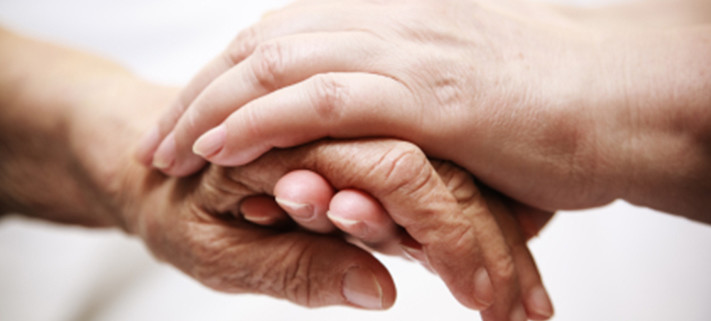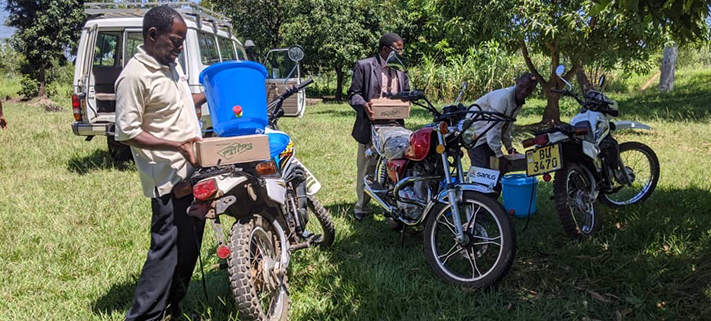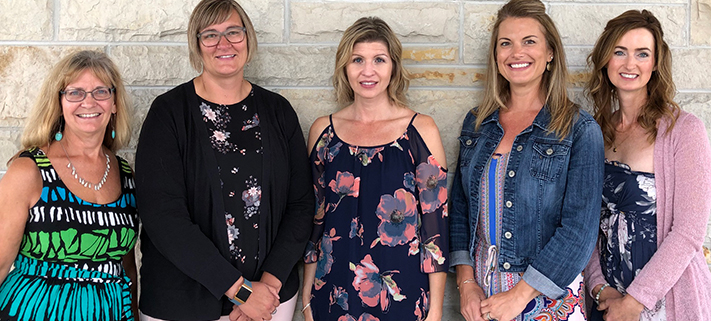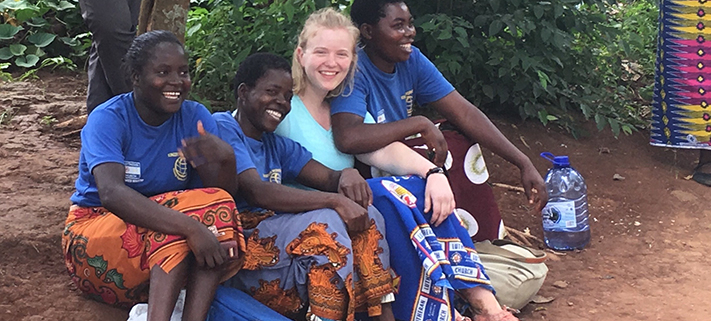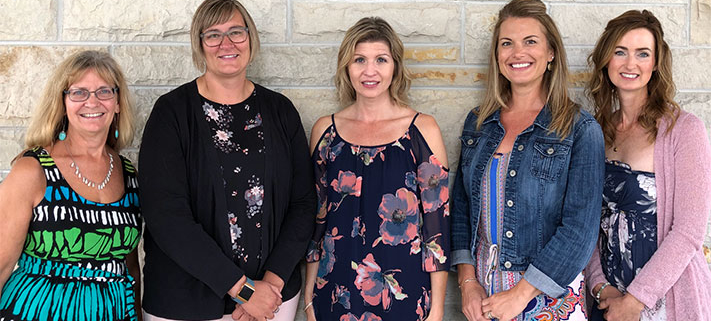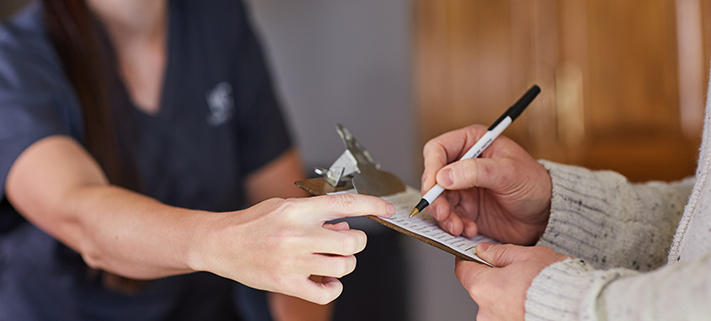By Alexis Adams MS, Professional Counselor
From finishing school, to becoming a mom, to working full time, I have found that I often spread myself too thin, taking on the role of helper but ultimately neglecting to help myself. I am sure many of you can relate. Particularly, in my field of work as a professional counselor, I am surrounded by struggling individuals and families, and I have the honor and challenge of being present with them and their emotionally heavy struggles. Do not get me wrong—I love what I do and I would not change it for the world. However, in doing what I do, I am required to be a little more proactive in preventing myself from burning out. The goals and principles outlined below have helped me as a professional counselor to manage self-care effectively and will also benefit those in a nursing profession.
It is a bit ironic that one of my greatest struggles is also one of the things I advocate most for my clients to use in their own lives. I remind them of how absolutely essential taking time for themselves is. I preach to them that they cannot pour from an empty cup, yet I have difficulty heeding my own words. I make excuses such as I am too busy or I will do it later when things settle, which they never will, so that futuristic date is ever elusive. I feel that the real message I am sending is that I am somehow above taking time for self-care, that informing others of its many benefits is somehow sufficient. This is like telling the pastor that because he preaches God’s Word to his congregation, he does not have to be in Scripture to feed his own soul.
I understand the importance of self-care, especially given the nature of my work. I truly do not believe it is beneath me—far from it. I, like other health professionals, carry a lot on my plate. Bogged down by heavy caseloads, troubled people, administration, and life stress…the list never seems to end. Self-care is even more pertinent to my life and well-being because others are counting on me, and I cannot give to them if I have nothing left to give.
Based on the research and my own life experience, most of self-care begins with being mindfully aware of ourselves. That involves being conscious of our limits, needs, triggers, and warning signs, as well as knowing what our norm is and when we have exceeded that point. For example, I know that I need to take a step back and give myself some attention when I lack the desire and energy to involve myself with others or do the things I most enjoy. However, by that point it is too late for me—I am emotionally exhausted and ineffective in serving others. So instead, I have compiled a preventative list: things that you can do or keep in mind in order to prevent burnout as well as ways to incorporate more self-care into your everyday life in order to avoid reaching that point.
First, as difficult as it may be, leave work at work. In my own life, this is often a cop-out for why I do not have time to take care of myself. I come home and take care of the needs of my family and then continue to occupy my time with e-mails and paperwork, leaving no room for the things I enjoy for myself. I have to remind myself that the e-mail I want to reply to will still be waiting for me when I return in the morning. I do understand that things pile up and that there never seems to be enough hours in the day to do all that we need to do. However, consider the supply and demand principle. The more time we allow ourselves to supply, the more our work will demand.
Next, be familiar with common warning signs of impending burnout. They are different for every person, but some examples include loss of hope, feeling numb or distant, lack of pleasure in things that were once pleasurable, thinking of work outside of work, etc. Once you are aware of your signs, be sure to listen to them. They are your mind’s way of telling you to take a break.
This leads to my next point: be sure to do something that you enjoy at least once a week, if not once a day. Anything will do, but be sure that no matter what you do, you do it for you. For some, that might mean going on a run or listening to their favorite type of music. Others may garden or build something. It is much less about what you do and more about making the time to do it. Whatever you do does not have to be time consuming; you may only have a few short minutes most days, but once a week you should block off a few hours. Again, the goal is to find something that you can reasonably do that helps you to find peace.
Ask for help if you need it. Often I feel that we as helpers believe we must be superhuman—that we cannot have needs or problems, which ultimately sets us up for failure when we are confronted with reality. Realize that it is not weakness to seek out support. It does not make you any less effective as a helper, but rather makes you stronger because you are not left to shoulder the burden alone. We all have problems that we carry on our hearts, and I encourage you to share them. Our shared experience can be empowering. It reminds us that we are not alone and gives us new insight into how to address our problem from a different angle. Please seek out the support of someone you trust—someone who is familiar with you who can check in with you on a regular basis. Perhaps that person is a friend, colleague, supervisor, or trained counselor—someone you feel that you can go to.
Additionally, and perhaps most importantly, be sure to actually ask for help. We cannot expect for people to be able to read our minds. They may have no idea you are struggling until you reach out, and not for lack of caring. Sometimes it can be difficult to bridge that gap, to check in with someone for fear that we may embarrass them or be off-base.
As simple as it may seem, part of self-care is taking care of the basic necessities. Make sure that you are getting decent sleep on a regular basis, eating balanced meals, getting regular physical activity, and keeping up with personal hygiene. To that degree, be sure that you are taking time for self-care in all facets of your well-being, not just the physical. Take care of your emotional, spiritual, mental, and social self as well. I like to view the whole person and all their parts as a wheel, with each of the facets of the whole person being represented by a spoke. If any one spoke were to become too long (that is, you are devoting too much time to it) or too short (that is, you’re not spending enough time attending to it), then the wheel will not roll. We must balance to maintain all areas of life equally.
Trying to keep up with everything in life can be exhausting. Give yourself permission to take a break. Take time to take time off. Go on a vacation. Step away in order to refresh. You are not doing yourself or anyone else any favors by being the workaholic martyr. In fact, research has found that people who use their vacation time or take a break from work are more productive in the long run.
Another thing to take into consideration is your perspective. Be realistic about how much you can control and do. It will help alleviate some of the unnecessary stress that you put on yourself. While we have the best intentions and truly desire to help others as caregivers, there is only so much we are able to do. The rest is out of our control. Make peace with the fact that you tried and did your best, and allow for God’s will to be done. Remind yourself that God says, “Be still, and know that I am God” (Psalm 46:10), with the realization that he is present in your many vocations and duties.
Finally, be your own cheerleader. Give yourself positive affirmations. The work we do is draining. There is minimal appreciation, yet we pour our hearts and souls into it. It is OK to pat yourself on the back for a job well done. I find it helpful to keep notes from previous clients, students, or peers tacked to my walls or inside my cabinets to serve as reminders that I have made a difference in someone’s life. It helps me to get through the days that are especially tough, when I doubt why I do what I do, and when it is difficult to feel like I am enough.
Making time for self-care is not an easy feat. There will always be excuses or other things to be done, but it is important to keep in mind that you are a priority. You have to be—not only for your own benefit, but also for those you serve.
Alexis Adams, MS, is a professional counselor at the Christian Family Solutions counseling clinic in Mankato, Minn. She specializes in working with individuals who have experienced trauma, are dealing with attachment-related concerns, and who struggle with addiction. She also works with combat veterans. For more information about counseling services through Christian Family Solutions at their multiple clinic locations or via secure video, please visit ChristianFamilySolutions.org.
Learn about the ministry work of WELS Special Ministries.
Support the ministry work of WELS Special Ministries.

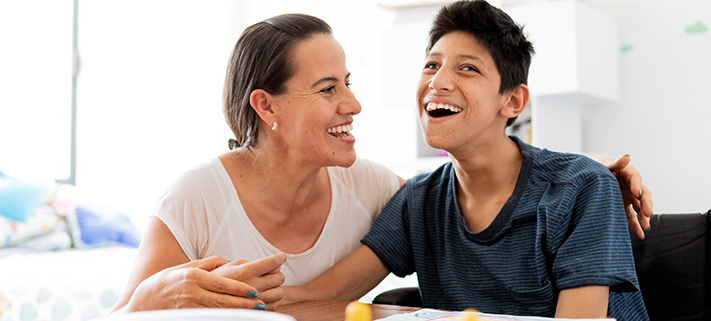

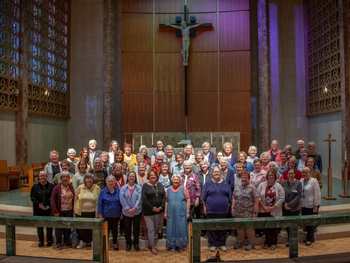 Parish Nursing dates back to the New Testament as Phoebe opened her home to help the sick and needy. Then many years later, in 1881, Lutheran General Hospital, in Chicago, staffed deaconess nurses. It would be a century before Parish Nurses were given a name. Presently, hundreds of parish nurses serve in churches throughout the States (and internationally) where the programs are energetic and effective.
Parish Nursing dates back to the New Testament as Phoebe opened her home to help the sick and needy. Then many years later, in 1881, Lutheran General Hospital, in Chicago, staffed deaconess nurses. It would be a century before Parish Nurses were given a name. Presently, hundreds of parish nurses serve in churches throughout the States (and internationally) where the programs are energetic and effective.